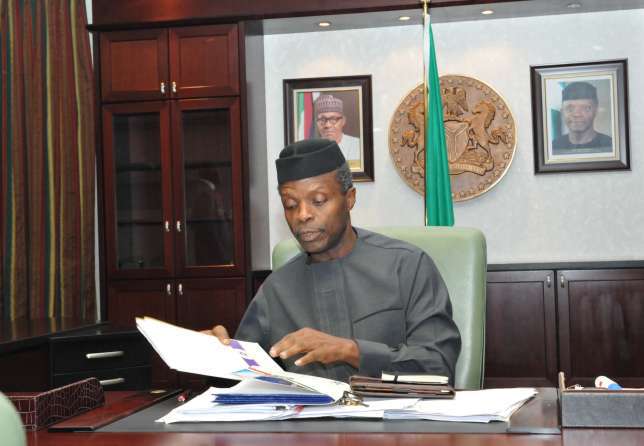
The Federal Government, on Monday in Abuja, lamented a situation where its neighbours would deliberately import goods, charging far lower duty with the intention of smuggling such through their borders with Nigeria.
Addressing participants at the sixth quarterly business forum for private sector stakeholders, Vice President Yemi Osinbajo said smuggling remains an existential threat to its economy, a point the Muhammadu Buhari administration tries to make neighbours within the West African sub-region appreciate.
“We can’t permit the level of smuggling going on,” he warned, recalling a situation last year where a neighbouring country meant to smuggle over 500,000 metric tonnes of rice into the country around Christmas but was blocked.
Despite the enormous efforts and investment put into making Nigeria self-sufficient in rice production, the Vice President spoke of a renewed attempt as “three shiploads of rice have left Thailand (bearing) 120,000 metric tonnes, going to this same neighbour of ours who have very large warehouses where they store this rice. It is very clear that this rice is for us because our neighbours don’t consume parboiled rice. They consume the white broken rice. It is clear that our neighbours do excellent business, with allowing rice to come into Nigeria and other products including poultry
“I think it is important for us as a country, to make the point clear, that we are not going to accept that. We are all within the same economic zone and work together, so we go in a friendly and polite manner as possible, to ensure that this practice stops.
“For those who are familiar with it, the duty in some of these neighboring countries, especially for rice, is deliberately set lower than ours, it is about a fourth of ours. We have increased duty tax so as to discourage importation but they would naturally drop duty to encourage import and then it would come to Nigeria,” he stressed.
He challenged the stakeholders to put similar efforts into local poultry production as was done in the case of tomato paste industry where a clear policy was developed, outlining clearly “what it would take to bring local production to the point where cost don’t go high because we are banning imports.”
He noted suggestions around a standing-consultative forum on agriculture and agri-business, which he said are extremely useful and will be left with the Ministers of Agriculture, as well as Industry, Trade and Investment to work out.
While appreciating those who attended the event, Nigeria, he believes is already “at a special moment in our journey to food security, and to becoming a power of sorts, especially of processed agricultural products in particular.
“We are in a special moment because the Federal Government has shown commitment towards agriculture and entire value chain. We have seen enthusiasm of all the players, including the small farmers all across the country.
Speaking on intervention funds in agriculture, he assured that such would reach the right people, even as government is “also refining the Anchor Borrowers’ Programme, and other intervention schemes that we have.”












